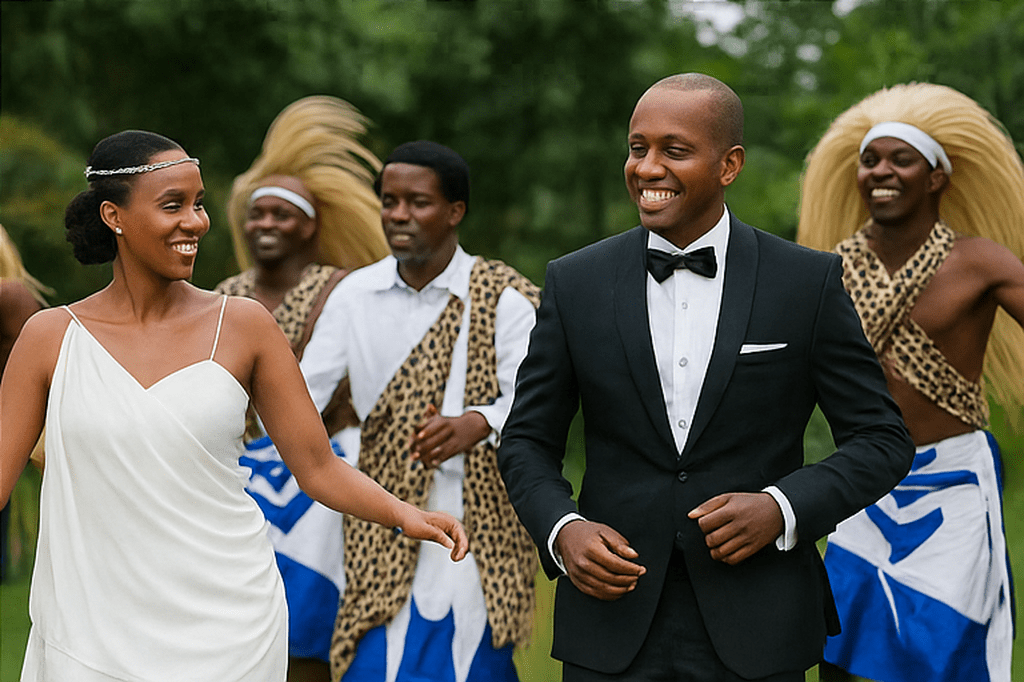
How to Plan a Rwandan Wedding: A Step-by-Step Guide
How to Plan a Rwandan Wedding: A Step-by-Step Guide
Weddings in Rwanda are more than just a celebration of love; they’re deeply rooted in culture, family, and community. Whether you’re planning a traditional Gusaba ceremony, a church wedding, or a glamorous reception in Kigali, organizing a Rwandan wedding can feel overwhelming without proper guidance.
In this article, we break down the process into clear, manageable steps—offering a comprehensive wedding planning guide for Rwandan couples. From budgeting and venue selection to incorporating traditional elements, here’s everything you need to know to plan your big day.
Step 1: Set Your Budget
Like any major event, the first and most important step is setting a realistic budget. This will influence every decision that follows—venue, guest list, attire, catering, and décor.
Typical expenses to include:
- Gusaba (traditional dowry ceremony) costs
- Ceremony (church, civil, or both)
- Reception (venue, catering, entertainment)
- Bride and groom attire (traditional + modern outfits)
- Photographer/videographer
- Transport and accommodation (if needed)
- Makeup, hair, and grooming
- Wedding planner or coordinator
Example:
A mid-range wedding in Kigali with 150 guests might cost between 8M and 15M RWF, depending on your venue and decor choices. Smaller, village-based weddings may cost less, while luxury weddings can exceed 25M RWF.
Step 2: Define Your Wedding Style and Vision
Once you know your budget, decide on the overall theme or feel of your wedding. Will it be traditional, modern, or a blend of both? Do you envision a rustic garden event or a glamorous ballroom affair?
Common Rwandan wedding styles:
Traditional wedding only (Gusaba + cultural reception)
Traditional + modern (Gusaba, followed by civil or church ceremony and a reception)
Modern Christian/Civil wedding only
Step 3: Set a Date and Book Your Venue
Popular wedding venues in Kigali like Pinnacle Gardens Kigali and beyond can be booked months in advance—especially during peak seasons (June–August and December). Once your date is confirmed, secure your wedding venue and start sending out save-the-dates.
Tips for booking a venue:
Visit the venue in person before confirming
Ask about capacity, restrictions, parking, and backup rain plans
Inquire if the venue offers packages (decor, catering, etc.)
Example:
For an outdoor wedding you can book at Pinnacle Gardens Kigali as early as months in advance.
If you’re planning a lakeside wedding at Lake Kivu Serena Hotel, you may need to book at least 6–9 months in advance, especially if you want an outdoor setup.
Step 4: Organize the Gusaba Ceremony
The Gusaba is a cornerstone of Rwandan wedding tradition. This ceremony involves the groom’s family visiting the bride’s family to formally request her hand in marriage. It is often ceremonial and symbolic, even if the dowry exchange is modest.
What to plan:
Venue: Often held at the bride’s family compound or garden
Emcee (umuvugizi) to lead the negotiation ceremony
Traditional attire for the couple and families
Seating, decor, and refreshments for guests
Optional Additions:
Traditional music or intore dance troupe
Serving banana beer and traditional snacks like isombe or urwagwa
Step 5: Hire Key Vendors
Once you have your venue and Gusaba planned, focus on booking essential service providers early:
Photographer/Videographer: Choose someone familiar with Rwandan wedding traditions
Caterer: Decide whether to go local, continental, or a mix
Decorator: Many decorators offer complete themes (rustic, luxe, traditional)
Hair & Makeup: Book trials in advance for the bride
MC & DJ/Band: Entertainment sets the tone of your event
Step 6: Finalize the Guest List and Send Invitations
In Rwandan culture, weddings are community-centered, so guest lists can grow fast. Make sure your list aligns with your venue capacity and budget.
Guest categories to consider:
Immediate and extended family
Church or community members
Friends, colleagues, and neighbors
You can use printed invitations or digital platforms like WhatsApp or email, especially for younger guests. Consider a Google Form or wedding website to manage RSVPs.
Step 7: Arrange Legal and Religious Requirements
To make your marriage legally binding in Rwanda, you must complete a civil wedding ceremony at your local sector office. Religious weddings—especially in churches—often require premarital counseling and documentation.
Documents typically required:
National IDs or passports
Birth certificates
Declaration of marital status
Parental or guardian approval (for younger couples)
Step 8: Schedule Pre-Wedding Events
Besides the main wedding, some couples choose to include additional events such as:
Bridal Shower (Kitchen Party): A celebration where the bride receives advice and gifts
Groom’s Send-off: Often hosted by friends or family
Rehearsal Dinner: Useful for formal or church weddings
These events are optional but help to build momentum and bond with family and bridal parties.
Step 9: Create a Timeline and Delegate Tasks
As the wedding day approaches, create a detailed schedule for the day—including arrival times, speeches, dances, meals, and more. Share it with your planner, MC, and vendors.
Don’t forget to:
Delegate tasks to trusted friends or a wedding planner
Confirm vendor bookings and payments
Pack an emergency kit (needle/thread, water, deodorant, snacks)
Step 10: Enjoy the Day
After months of planning, it’s time to relax and enjoy your big day. Trust the team you’ve assembled and allow yourself to be fully present with your spouse, family, and guests.
Tip:
Hire a day-of coordinator or assign a close friend to handle logistics, so you can focus on the experience—not the schedule.
Planning a Rwandan wedding—whether steeped in tradition or styled for modern flair—requires coordination, patience, and love. From the Gusaba ceremony to the joyful reception, each step offers an opportunity to celebrate your identity, culture, and community.
With a clear roadmap and the right support, you can create a wedding that reflects your values, style, and vision for the future. After all, your wedding is not just a ceremony—it’s the beginning of a lifelong journey.